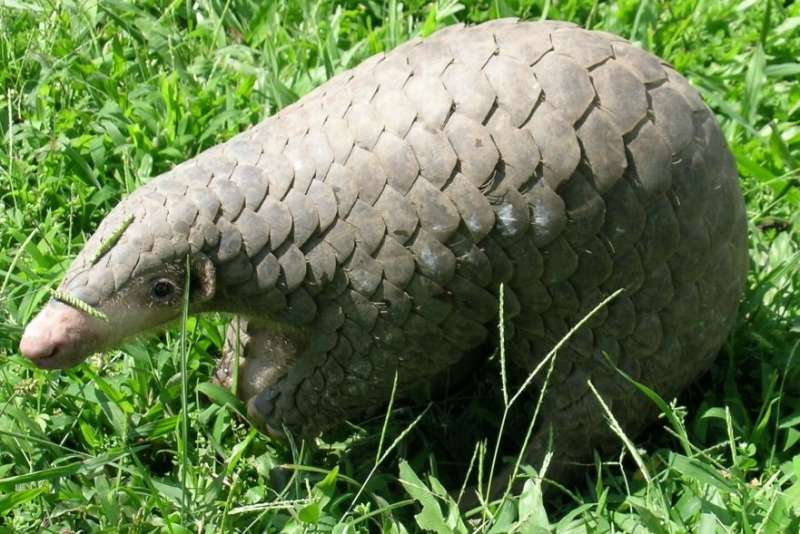Uncovering how endangered pangolins, or 'scaly anteaters,' digest food

The endangered Sunda pangolin, or "scaly anteater," is a widely trafficked mammal, prized in some cultures for its meat and scales. Little is known about these animals, and raising rescued pangolins is tricky. In the wild, they eat termites and ants, but diets provided in captivity often make them sick. Now, a study in ACS Omega reports that pangolins lack some common digestive enzymes, which could explain why some diets don't work well for them.
Pangolins use their long, sticky tongues to extract termites and ants from their nests for a tasty meal. Most of the protein content in these insects is locked up in their exoskeletons, which are made of chitin, a substance that is difficult for most animals to digest. There is little information about how pangolins get energy and nutrients from ants and termites. While those who rescue pangolins work to feed them diets they think are nutritious, pangolins do not take well to artificial food sources and often develop gastrointestinal diseases in captivity. Shibao Wu and colleagues wanted to find out whether the pangolin has a special digestive physiology.
The subject of the study was a single female Sunda pangolin, who died shortly after arriving at a rescue facility. Using mass spectrometry to detect the various kinds of digestive enzymes in saliva and intestinal fluid, the researchers found higher levels of chitinase, the enzyme that breaks down insect protein into usable energy and nutrients, in this pangolin than what is typically found in other animals. They also observed that the pangolin lacked some key enzymes that would have allowed her to consume food other than ants and termites. Although the study only reported findings from one animal, the results strongly suggest that pangolins have very specialized dietary needs and provide a better understanding of what foods these creatures should be provided when raised in captivity.
More information: Fuhua Zhang et al. Expression Profile of the Digestive Enzymes of Manis javanica Reveals Its Adaptation to Diet Specialization, ACS Omega (2019). DOI: 10.1021/acsomega.9b02845
Journal information: ACS Omega
Provided by American Chemical Society




















